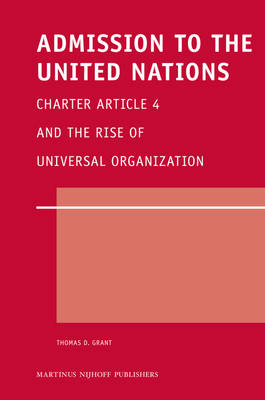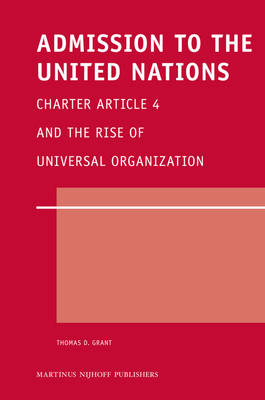
- Afhalen na 1 uur in een winkel met voorraad
- Gratis thuislevering in België vanaf € 30
- Ruim aanbod met 7 miljoen producten
- Afhalen na 1 uur in een winkel met voorraad
- Gratis thuislevering in België vanaf € 30
- Ruim aanbod met 7 miljoen producten
Zoeken
Admission to the United Nations
Charter Article 4 and the Rise of Universal Organization
Thomas D Grant
€ 288,45
+ 576 punten
Omschrijving
The United Nations began as an alliance during World War II. Eventually, however, the UN came to approximate a universal organization - i.e., open to and aspiring to include all States. This presents a legal question, for Article 4 of the Charter contains substantive criteria to limit admission of States to the UN and no formal amendment has touched that part of the Charter. This book gives an up-to-date account of admission to the UN, from the 1950s 'logjam' through on-going controversies like Kosovo and Taiwan. With reference to Charter law, the book considers how Article 4 came to accommodate universality and what the future of a universal organization in a world of politically diverse States might be.
Specificaties
Betrokkenen
- Auteur(s):
- Uitgeverij:
Inhoud
- Aantal bladzijden:
- 332
- Taal:
- Engels
- Reeks:
- Reeksnummer:
- nr. 50
Eigenschappen
- Productcode (EAN):
- 9789004173637
- Verschijningsdatum:
- 7/04/2009
- Uitvoering:
- Hardcover
- Formaat:
- Genaaid
- Afmetingen:
- 165 mm x 244 mm
- Gewicht:
- 748 g

Alleen bij Standaard Boekhandel
+ 576 punten op je klantenkaart van Standaard Boekhandel
Beoordelingen
We publiceren alleen reviews die voldoen aan de voorwaarden voor reviews. Bekijk onze voorwaarden voor reviews.








